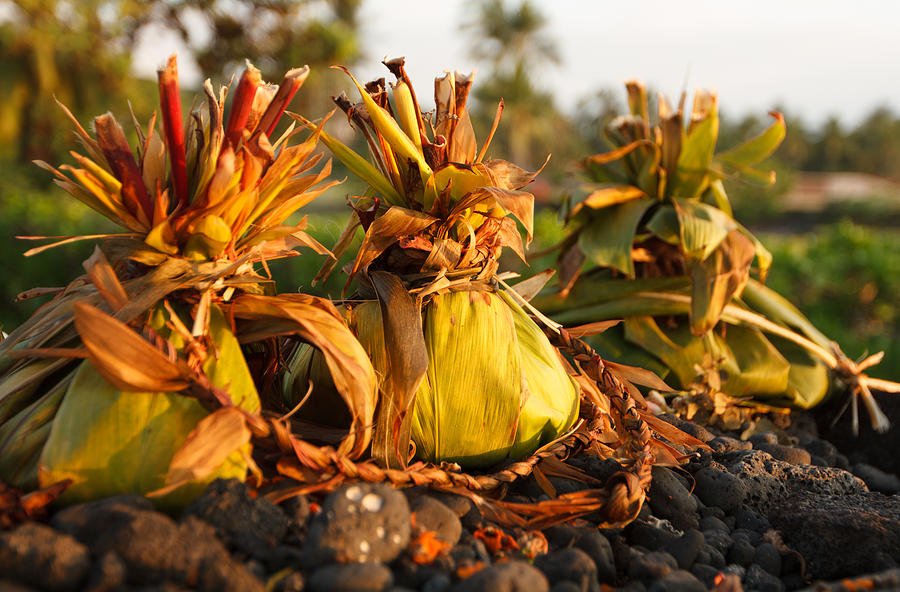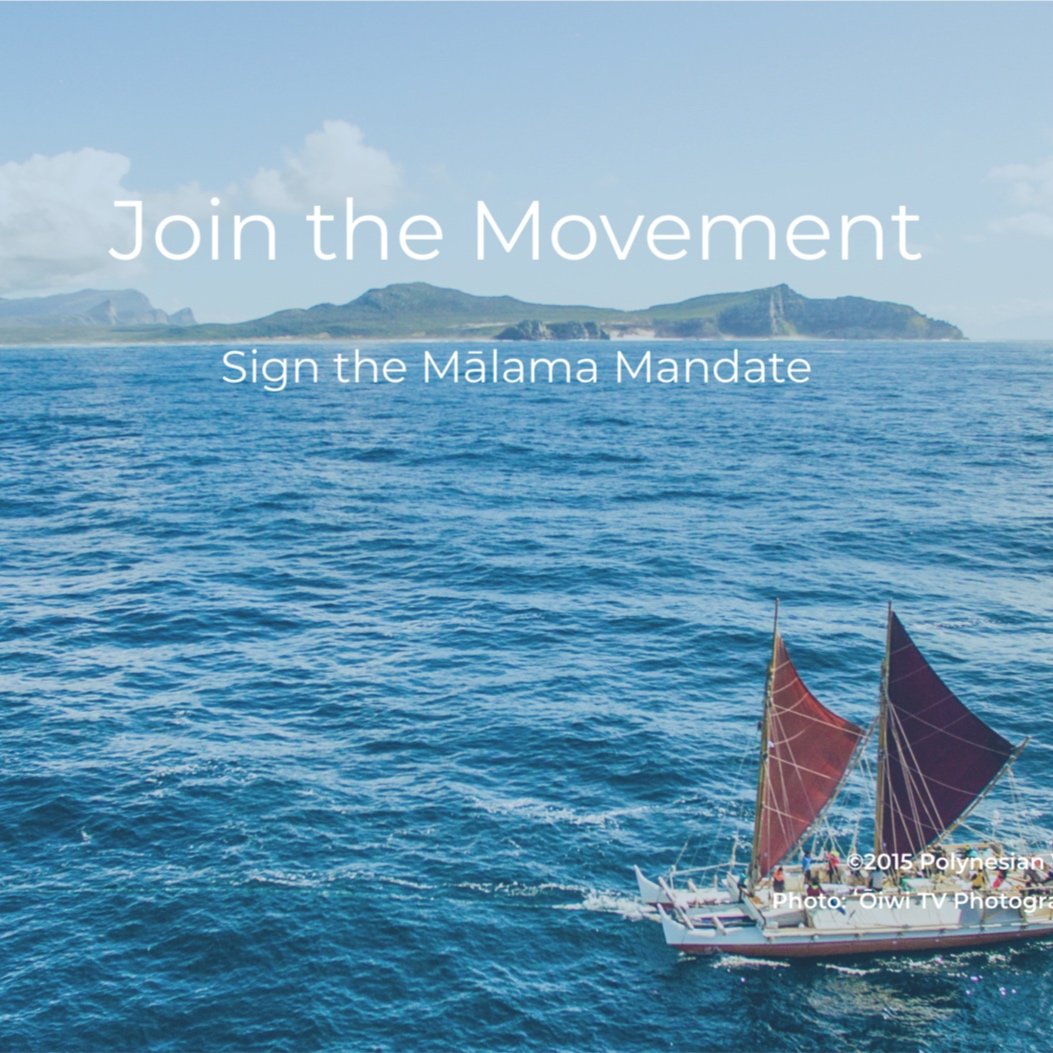
“All of man’s acts in Hawaiʻi must be dominated by the spirit of mālama.”
- Senator Kenneth Francis Kamuʻookalani Brown, NaHHA Co-Founder
Mike White
With a legacy of 37 years as the General Manager of the Kāʻanapali Beach Hotel, Mike White is the longest serving General Manager in Hawaiʻi. He recently retired and NaHHA wanted to share a 2022 interview with him where he discusses the journey to truly embracing Hawaiian culture as part of the fabric and essence of the hotel, through its programs and its employees.
Congratulations Mike on this new chapter and mahalo nui for everything you have done for Native Hawaiian culture and its people!
Mālama Resources
Below you will find a listing of resources to deepen your understanding of the value, ethic, and lifestyle of “Mālama” as well as regenerative tourism resources as they relate to the ways that you can facilitate mālama throughout our community. Check back often as we are constantly updating the resources linked below.
Define it.
Mālama Kuʻu Home, John De Fries
According to John De Fries, Mālama Kuʻu Home (caring for my beloved home), is a visceral affirmation that acknowledges the inherent capacity for human beings to feel rooted and responsible for their places of origin or places where they reside and call home. Regardless of our ethnic backgrounds, the foundational principle of mālama kuʻu home is embedded in our individual being and collective DNA.
Learn About it.
NaHHA’s Mālama Training
Regardless of where we come from or what our DNA says we are, mālama, to take care of something, is an inherent part of Hawaiʻi’s collective consciousness. Pulling from the work of one of NaHHAʻs founding board members and inspired by Senator Kenny Brownʻs Mālama speech given in 1973, the value of mālama acknowledges the need to feel rooted, connected and responsible for our places of origin or the places we call home and sets a course of action where the guiding principles of mālama can be put into daily practice. Click the button below to join our Mālama class.
Live it.
Mālama Ethic, Sen. Kenneth Brown
Senator Kenneth Brown, a visionary and founder of NaHHA and other community organizations, delivered this speech on July 25, 1973 as the foundation for planning Hawaiʻi’s future. Presented on the Senate Floor in the Hawaiʻi State Capitol, Senator Brown outlined the mālama ethic and the way in which we can look to the value of mālama to guide every decision in every aspect of our lives.
Join it.
Mālama Mandate
The Mālama Mandate is a call to action - one inspired by our love for Hawaiʻi, our collective ancestors and descendants, and our commitment to navigating towards a better future for Mother Earth. Hawaiʻi Green Growth launched and signed the Mālama Mandate in 2018 as a commitment to adopt mālama (stewardship) values and accelerate island-led solutions through collective action. Since then, the mandate has been signed by island leaders and individuals around the world, each committing to take action on the Sustainable Development Goals (SDGs) in their communities. Sign the Mālama Mandate to perpetuate mālama values within your community and build a global culture of sustainability for future generations.
Pledge to do it. (Maui)
Mālama Maui County Pledge
The Mālama Maui County Pledge asks visitors to acknowledge, protect, respect, and learn about the islands’ culture, natural resources, and community during their stay. Maui County includes the islands of Maui, Molokaʻi, and Lānaʻi.
Pledge to do it. (Hawaiʻi)
Pono Pledge - Hawaiʻi Island
The Pono Pledge, created by the Island of Hawaiʻi Visitors Bureau and the Hawaiʻi County to educate residents and visitors on the importance of mālama and aloha when visiting and enjoying Hawaiʻi Island.
Evaluate it.
Pono Traveler Program
The Pono Traveler Program, created by the Sustainable Tourism Association of Hawaiʻi (STAH), engages sustainably-minded travelers (both kamaʻāina and malihini) to engage with and help evaluate Certified Sustainable Tour Operators as part of STAH’s certification program throughout Hawaiʻi.
Map it.
Aha Moku Library
The Aha Moku Library consists of documents, texts and articles that informed the Aha Moku traditional natural resource management initiative and the Aha Ki`ole Advisory Commission legislative reports. The Aha Moku system is based on the ahupuaʻa system of sustainability and traditional natural resource management.
What is Regenerative Tourism? —A journey & not a destination
Pauline J. Sheldon, PhD., is a Professor Emeritus at the University of Hawaiʻi at Mānoa. She is a topical expert on Regenerative Tourism and has conducted extensive research in tourism, economic and international business and the many impacts it has on destinations and communities.
Regenerative Tourism is values-based and it can assist destination communities to thrive by looking to living systems for inspiration. It is a mindset-shift from what tourism has been and what it can be when we apply our values to create prosperity and community well-being.
Regenerative Tourism & Planning for the Future Workforce
As the Hawaiʻi tourism industry responds to the immediate needs of today, our educators also have a responsibility to prepare the next generation of industry leadership in Regenerative Tourism principles.
What opportunities are being taken in education and curriculum development to support and advance this new way of tourism management? What planning efforts are already underway to ensure that our Travel Industry Management program at the University of Hawaiʻi is also making this pivot.

E hele me ka pūʻolo.
Make every place, person, or condition better than you found it.
Additional Mālama Resources
Interested in creating a regenerative community experience? Interested in growing your organization’s capacity to host visitors in your community organization? Or maybe you are interested in participating in a voluntourism experience or introducing our guests to an experience that will allow them to give back to our community?
The resources below are curated to kōkua just that - to provide more information on regenerative experiences that benefit our local community throughout Hawaiʻi. Whether you are looking to create a regenerative tourism experience to host visitors or participate in one yourself, these resources will help you find just what you need.
Participate in it.
Mālama Hawaiʻi Campaign
The Mālama Hawaiʻi program brings together industry partners and community organizations to offer unique volunteer opportunities to visitors who are looking to give back while in Hawaiʻi.
Do it.
Travel2Change.org
Looking to find regenerative community experiences and activities to give back to the community? travel2change.org is home to activities (free and paid) throughout the state that allow you to give back to the community and participate in voluntourism experiences.
Create it.
Voluntourism Program Checklist
Voluntourism is tourism related to travel to participate in voluntary work in the community where one is vacationing, typically for a charity or cause. Participation of visitors in voluntourism opportunities is one of the ways that we can encourage regenerative forms of tourism that benefit our island home and local community.
Looking to create a voluntourism activity? Check out the Checklist for suggestions to help you get ready to welcome visitors to your program.
Certify it.
Sustainable Tour Operator Certification
The Sustainable Tourism Association of Hawaiʻi (STAH) has a Sustainable Tour Operator Certification allowing companies and organizations to be recognized for their commitment and implementation of sustainable operations.
Check back often as we are constantly working to curate even more content and resources for you.
Do you have mālama or regenerative tourism resources that you would like us to feature on our page? Contact us using the form below.











